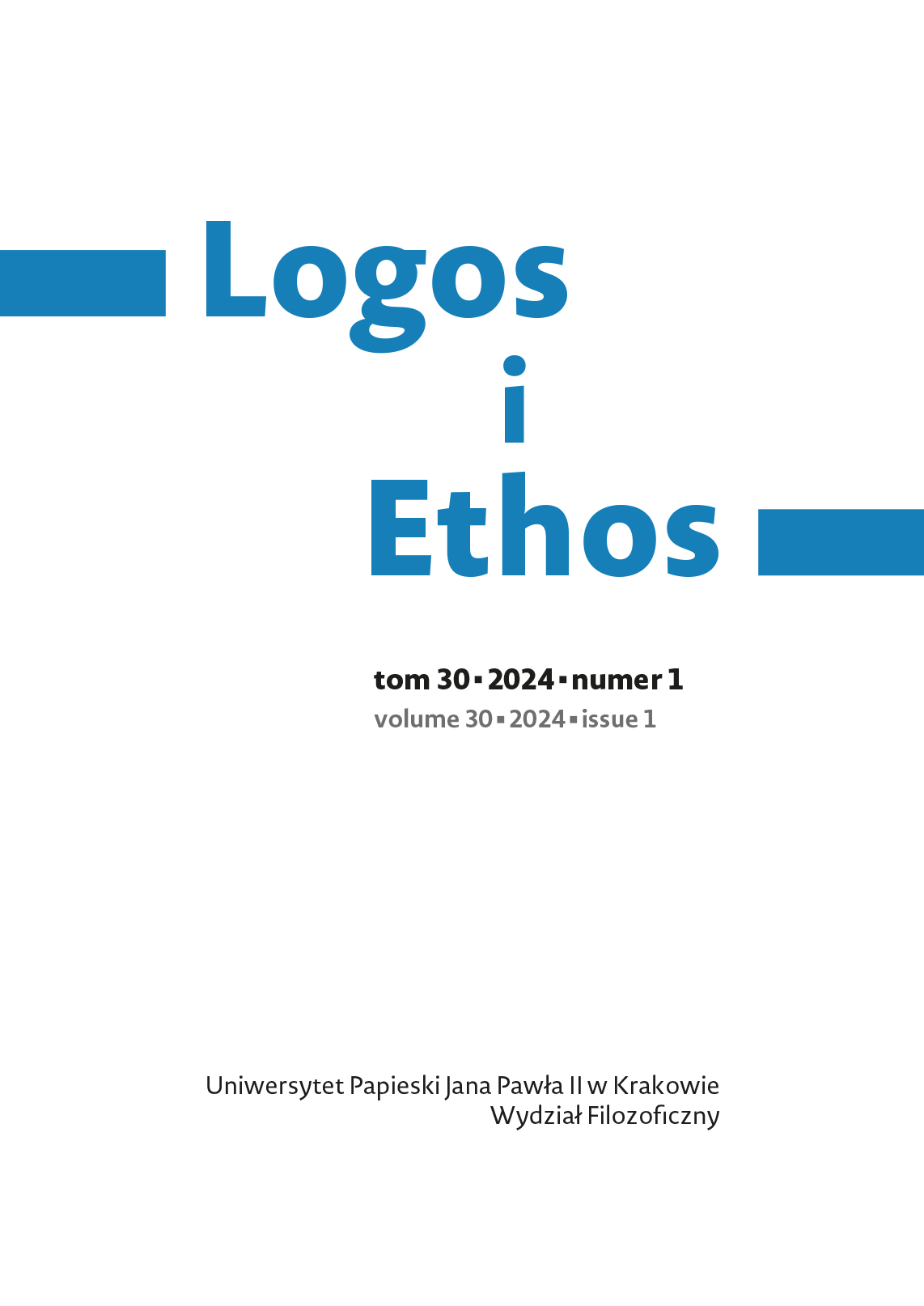Searching for relationship. Eros as a model of intersubjective relation in approach of Michel Henry and Christos Yannaras
DOI:
https://doi.org/10.15633/lie.30101Keywords:
desire, ego, Eros, Henry, life, phenomenology, relation, YannarasAbstract
It is paradoxical that the philosophical approach to relations initially did not refer to the intersubjective sphere at all. Moreover, in the metaphysical interpretation, the relation is something derived from what it binds. The issue of intersubjectivity received initial consideration only in the second half of the 19th century, and thanks to phenomenology, especially French, it came to the fore. After rejecting Husserl’s concept of knowing the Other as Alter ego, it was in this environment that the main models of interpersonal relations were developed, among which the erotic phenomenon occupies a significant place. The paper presents the erotic relationship in two perspectives: by Michel Henry and Christos Yannaras, which seem prima facie contradictory, but they complement and illuminate each other in an interesting way. For both philosophers, the erotic relationship is the primary way of experiencing life, and its foundation is desire. Both are convinced that Eros is a tragic relation, testifying to our finite condition. In both, the descriptions of the erotic relationship are extremely realistic, including in it also conflict and suffering. Both perform the deconstruction of the ego, which manifests itself in the event of love. Finally, both develop the phenomenology of life and place relationship at its heart. Thanks to the juxtaposition of Henry’s and Yannaras’s descriptions, the erotic relationship appears as both necessary and impossible, and thus as a paradox.
References
Barbaras R., L’Eros et la désublimation du désir, “Alter. Revue de phénoménologie” (2012) No 20, pp. 13–26.
Chrétien J.-L., La symbolique du corps: la tradition chrétienne du Cantique des Cantiques, Paris 2005.
Daniélou J., Platonisme et théologie mystique. Essai sur la doctrine spirituelle de saint Grégoire de Nysse, Paris 1944.
Depraz N., Comprendre la phénoménologie. Une pratique concrète, Paris 2012.
Depraz N., Eros et relation. Puissance générative et engendrement mutuel des pensées de Michel Henry et Christos Yannaras, “Alter. Revue de phénoménologie” (2012) No 20, pp. 27–38.
Depraz N., Phénoménologie de la chair et théologie de l’erôs, in: Michel Henry. Pensée de la vie et culture contemporaine, ed. J.-F. Lavigne, Paris 2006, pp. 167–181.
Grégoire de Nysse, Vie de Moïse, présenté par J.-Y. Leloup, traduit par J. Daniélou, Paris 1993.
Henry M., Incarnation. A philosophy of flesh, tr. K. Hefty, Evanston 2015.
Henry M., L'Expérience d'autrui: phénoménologie et théologie, in: M. Henry, Phénoménologie de la vie. Tome IV. Sur l’éthique et la religion, Paris 2004, pp. 155–163.
Henry M., The genealogy of psychoanalysis, tr. D. Brick, Stanford 1993.
Janicaud D., Le tournant théologique de la phénoménologie franҫaise, Combas 1991.
Karpiński P., Porażka erosa w fenomenologii Michela Henry’ego, in: Motyw miłości w wybranych tekstach literackich i innych dziedzinach kultury, eds. P. Szymczyk, E. Chodźko, Lublin 2018, pp. 43–52.
Karpiński P., Zwrot erotyczny w fenomenologii francuskiej?, “Ruch Filozoficzny” 77 (2021) No 1, pp. 89–112.
Marion J.-L., The erotic phenomenon, tr. S. E. Lewis, Chicago 2006.
Starzyński W., Miłość erotyczna jako paradygmat doświadczenia Innego w fenomenologiach Michela Henry’ego i Jean-Luca Mariona, “Fenomenologia” (2013) No 11, pp. 93–106.
Yannaras Ch., Variations on the Song of Songs, tr. N. Russell, Brookline 2005.
Yannaras Ch., Person and Eros, tr. N. Russell, Brookline 2007.
Yannaras Ch., Psychoanalysis and Orthodox anthropology, in: Personhood: Orthodox Christianity and the connection between body, mind, and soul, ed. J. T. Chirban, London 1996, pp. 83–89.
Downloads
Published
Issue
Section
License

This work is licensed under a Creative Commons Attribution 4.0 International License.
Authors who publish with this journal agree to the following terms:
- Authors retain the copyright and full publishing rights without restrictions, and grant the journal right of first publication with the work simultaneously licensed under a Creative Commons Attribution 4.0 International License that allows others to share the work with an acknowledgement of the work's authorship and initial publication in this journal.
- Authors are able to enter into separate, additional contractual arrangements for the non-exclusive distribution of the journal's published version of the work (e.g., post it to an institutional repository or publish it in a book), with an acknowledgement of its initial publication in this journal.
- Authors are permitted and encouraged to post their work online (e.g., in institutional repositories or on their website) prior to and during the submission process, as it can lead to productive exchanges, as well as earlier and greater citation of published work (See The Effect of Open Access).

